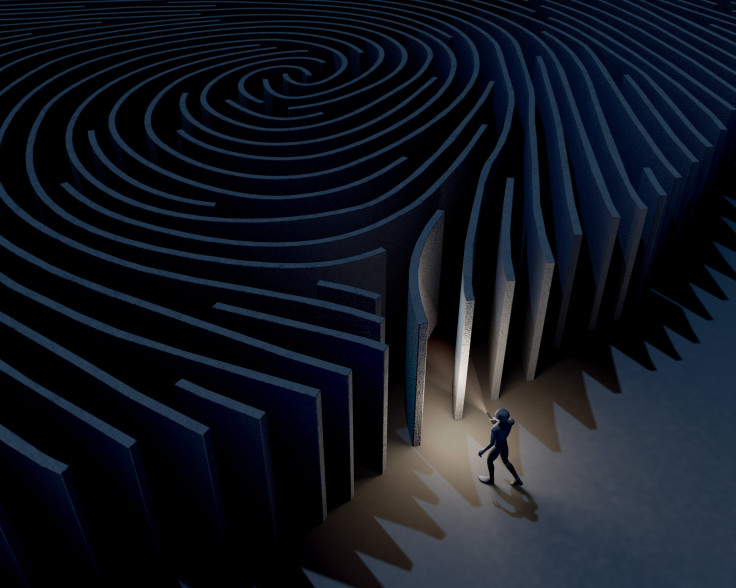Your Microbiome Could Replace Fingerprinting: Using Poop, Saliva, And Skin To Solve Crimes

Dusting for fingerprints may be an antiquated practice in forensics labs and hit drama series in the future. For the first time, researchers from the Harvard School of Public Health have proven it’s possible to identify an individual based on data from none other than our microbiomes. The study, published in the journal Proceedings of the National Academy of Sciences, reveals the traces of DNA we leave behind on our cellphones to stools in a public toilet could one day identify us as accurately as the distinct oil swirls left behind on a door handle.
"Linking a human DNA sample to a database of human DNA 'fingerprints' is the basis for forensic genetics, which is now a decades-old field,” the study’s lead author Eric Franzosa, a research fellow in the Department of Biostatistics at Harvard, said in a press release. “We've shown that the same sort of linking is possible using DNA sequences from microbes inhabiting the human body — no human DNA required. This opens the door to connecting human microbiome samples between databases, which has the potential to expose sensitive subject information — for example, a sexually-transmitted infection, detectable from the microbiome sample itself."
Microbes are all around us. They’re in the soil we walk on, the water we drink, and a unique collection even lives within our own bodies. Microbiomes are communities where hundreds of microbes live. They become so exclusive to our own body’s biology their uniqueness can be considered the counterpart to the human genome, according to the Genetic Science Learning Center.
The research team took microbiotic samples from a variety of places from the human body of more than 242 different people. After just one year, they found up to 86 percent of people could be identified with their poop’s gut bacteria alone. Skin was less reliable — only about a third of the skin samples could be matched with their rightful owner. But even if they couldn’t be matched correctly, there were very few false positives, which decrease the likelihood of blaming the wrong person for their personal poo sample.
Researchers say this will open the door to creating new databases through the Human Microbiome Project, which survives a person’s poop, saliva, skin, and other parts. Exposing the world to sensitive personal information, such as sexually transmitted disease is one of the complicated ethics the future of forensics will have to face. Will there be a day when it is impossible to walk into a room and leave virtually undetected? Researchers believe there will be, and with it will bring a slew of ethical dilemmas.
"Although the potential for any data privacy concerns from purely microbial DNA is very low, it's important for researchers to know that such issues are theoretically possible," the study’s senior author Curtis Huttenhower, an associate professor of computational biology and bioinformatics at Harvard, said. "Perhaps even more exciting are the implications of the study for microbial ecology, since it suggests our unique microbial residents are tuned to the environment of our body — our genetics, diet, and developmental history — in such a way that they stick with us and help to fend off less-friendly microbial invaders over time."
Source: Franzosa EA, Huang K, and Meadow JF, et al. Identifying personal microbiomes using metagenomics codes. PNAS. 2015.



























